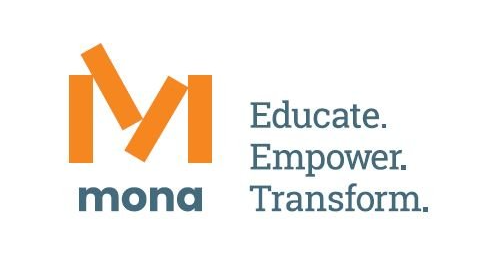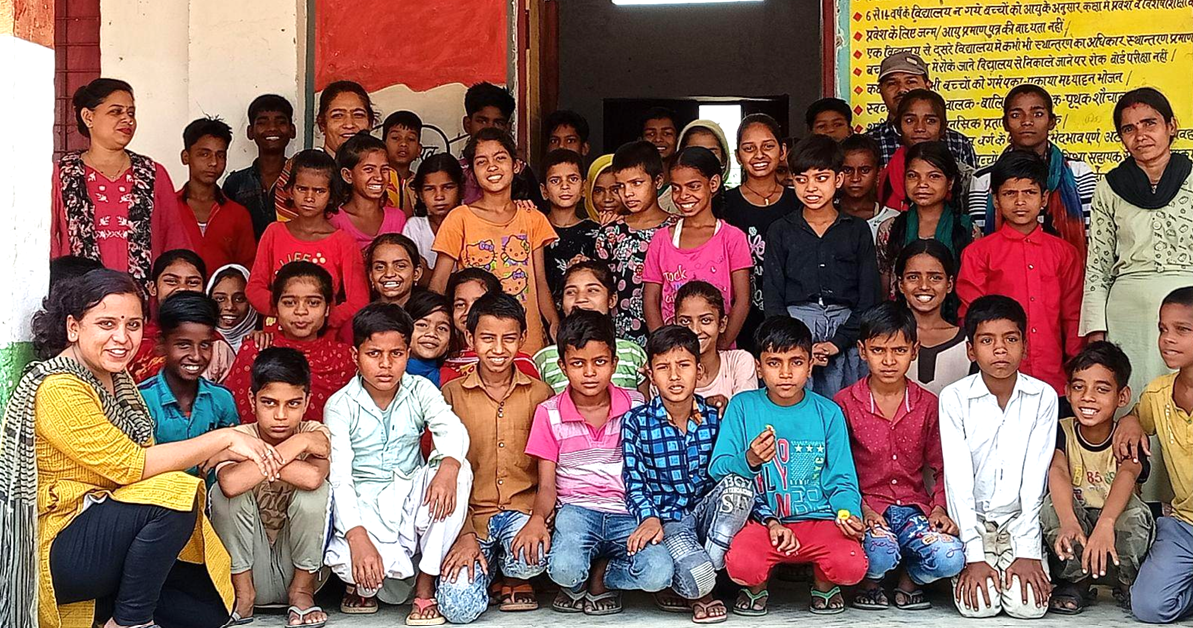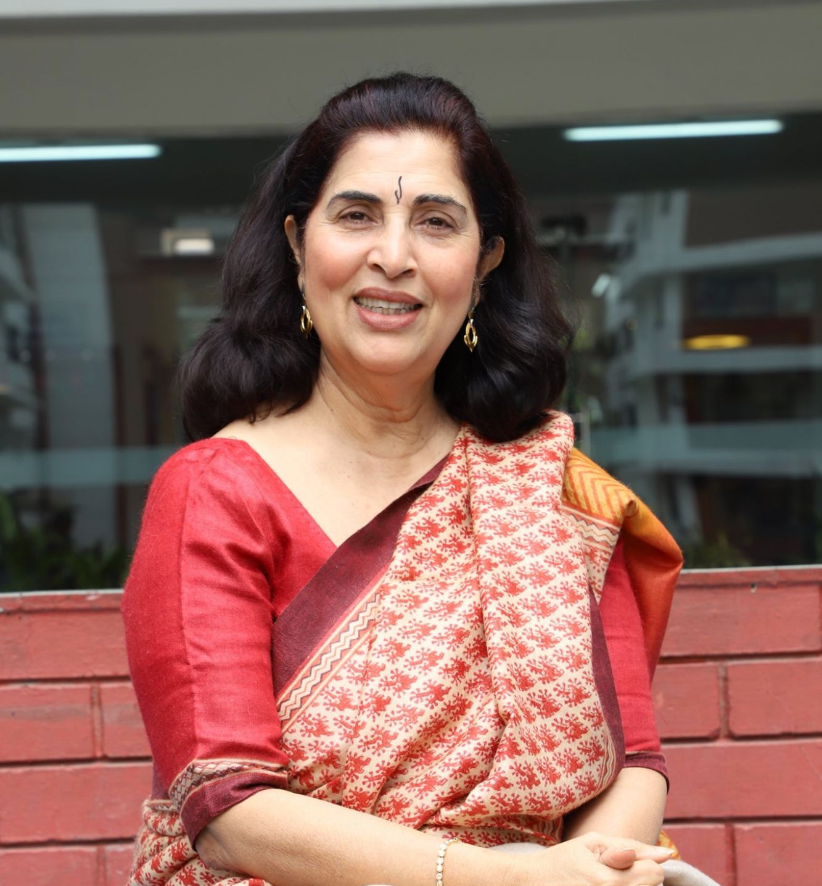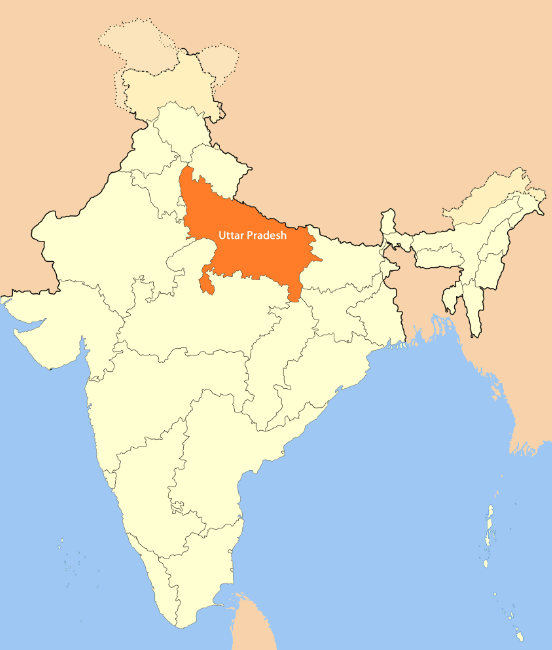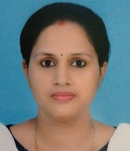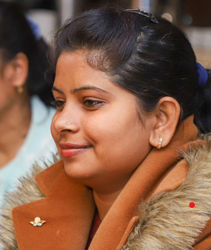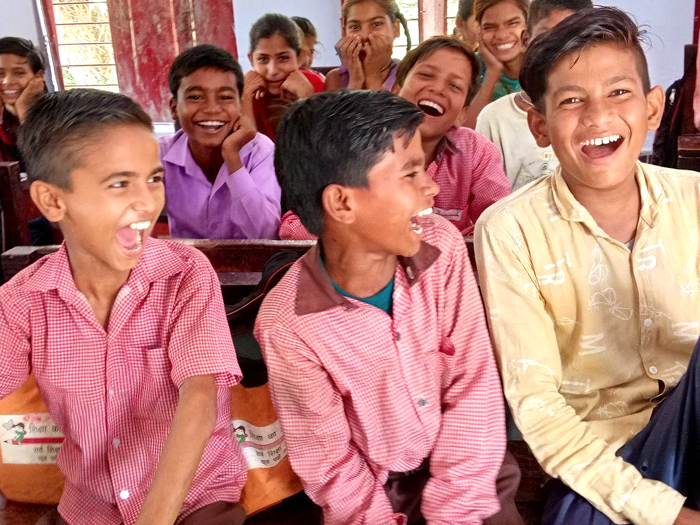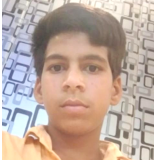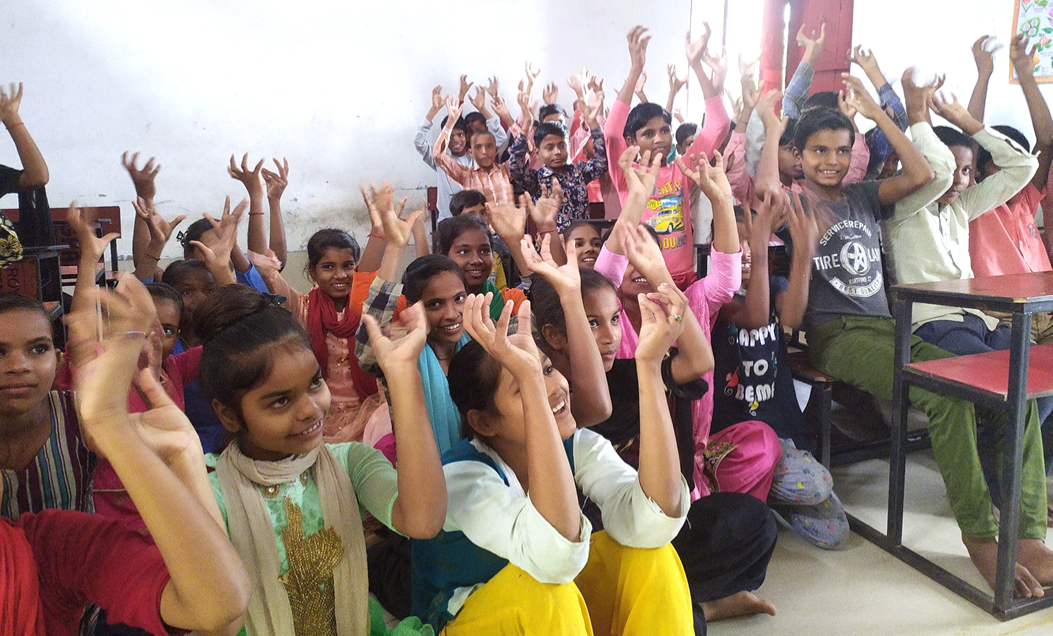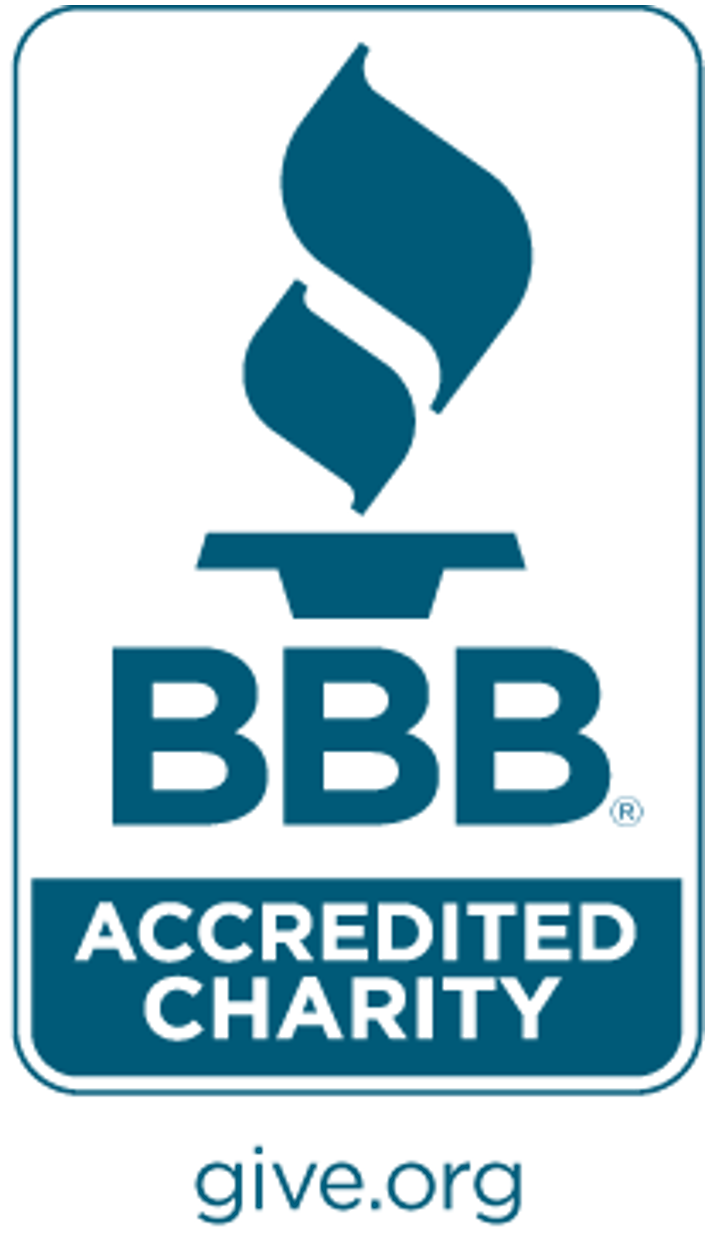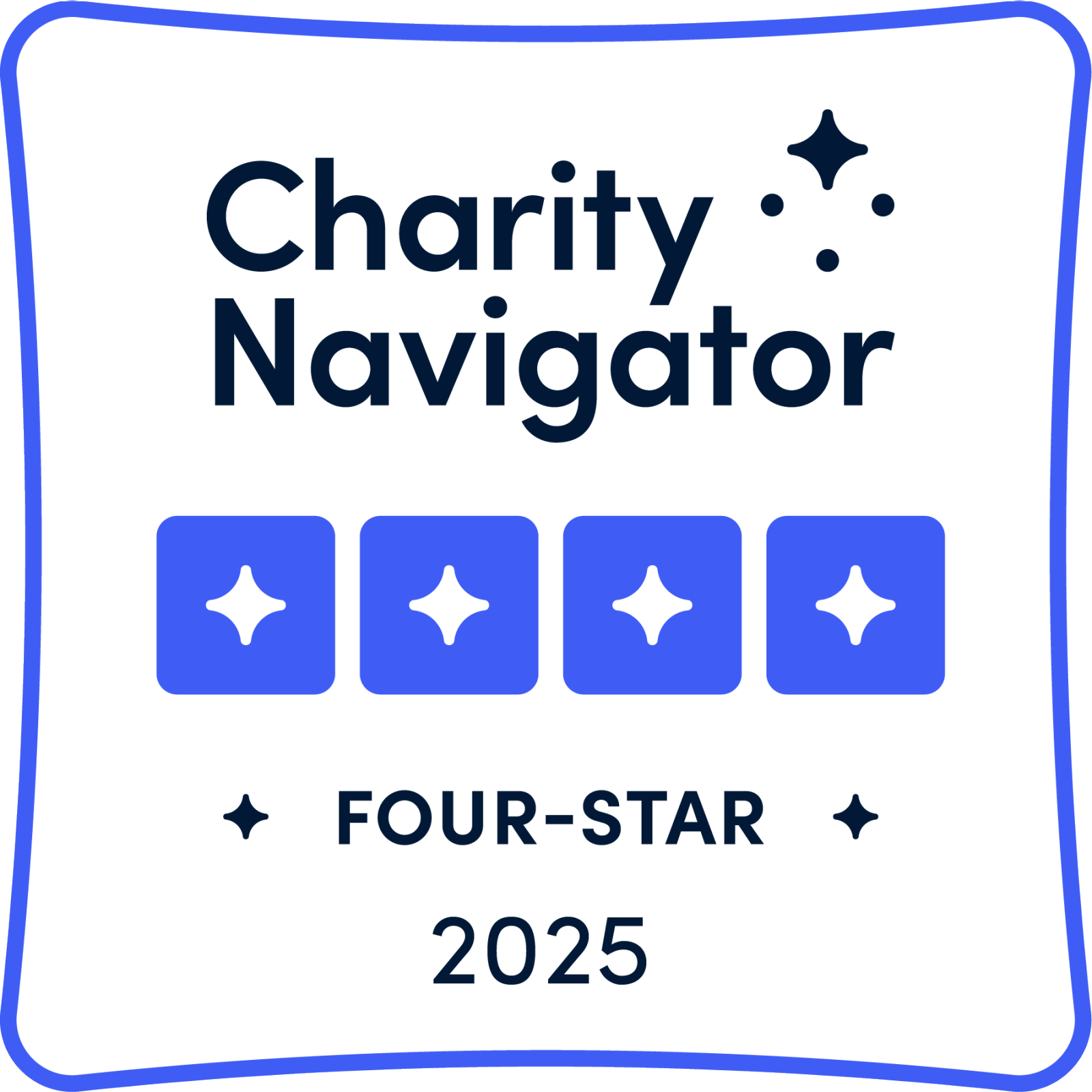Building an Empowered Culture of Gender Justice in Uttar Pradesh (India)
(Left to right) Aarohini’s program manager Priyanka, posing with the children and teachers at UPS Nayagaon, Newada after a field visit.
December 2023
-
Central to Mona Foundation's approach is the belief that sustainable development must begin and be led by local communities. While all social action is directed towards visibly improving some aspect of life, we believe its
primary goal is to develop people’s capacity
to make decisions about their own development and then to implement them at increasingly higher levels of complexity as they learn through their own experience. This is a long-term process that involves learning to work towards goals in a systematic way, to build on strengths, to foster collaborative relationships in service to the common good, and to apply lessons learned through experience.
Providing our grassroots partners with long-term support enables them to learn through experience over time, to
continually build capacity at the individual, organizational, and community levels,
to address needs with increasingly more complex solutions, and to ultimately scale their services and reach. Our partnership with Study Hall Educational Foundation is a great example of what is possible.
A Comprehensive Program to Systematically Eradicate Gender Discrimination
The Aarohini Girls Education and Empowerment initiative is fundamentally a program for training teachers, equipping them with both the mindset and tools necessary to critically analyze the social and political aspects of their lives, as well as understand the systemic roots of their oppression.
The program aims to create a chain of positive influence with teachers as agents of change, who in turn build the capacity of their students to recognize and challenge gender discrimination and engage parents to ensure that the rights of their students are protected. The intensive workshops and discussions included in this training are designed to empower teachers by enhancing their awareness of gender dynamics in their lives and communities. It seeks to broaden their perspective on the purpose of education and their role as educators and provides them with the resources to integrate a gender lens into their teaching. Once trained, teacher are supported to conduct regular critical dialogues with the students in their schools.
Training is essential in instilling confidence in teachers to be catalysts—through mobilizing students, parents and the wider community to engage in a deeper dialogue about girls’ autonomy and protecting student rights. This space also encourages teachers to share their own lived experiences and incidents from their personal lives, showing how they have experienced gender inequities while emphasizing a shared connection. If a teacher needs more guidance, or runs into an issue, they can reach out to SHEF’s One Stop Center (Women’s helpline) which provides continuous support through phone calls and WhatsApp.
Ultimately,
Aarohini goes beyond being an education and empowerment initiative for girls; it functions as a comprehensive system dedicated to systematically eradicating discrimination faced by adolescent girls.
The program operates on the belief that, through self-awareness, a nurturing and empathetic environment, and a culture of open dialogue, girls and boy can attain positive life outcomes. While the initial iteration of the Aarohini program worked to educate and empower girls to recognize, resist and overcome the social forces repressing them, the
second iteration now seeks to bring boys into the wider conversation and prepare teachers working in co-ed schools to address issues of gender injustices in the classroom and in the wider community.
Building capacity to educate and empower girls across Uttar Pradesh
When Mona's partnership with SHEF began in 2008, they were refining a girls-centered curriculum at their Prerna Girls school in Lucknow, Uttar Pradesh (UP). By 2011, this had evolved into the Aarohini Girls Education and Empowerment Program, rooted firmly in the philosophy that girls must receive an education that teaches them to critically examine the role and construct of gender in their own lives and communities. The next year, in collaboration with the UP Ministry of Education, SHEF expanded the program into a dozen state residential schools for low-income girls (called Kasturba Gandhi Balika Vidyalaya or KGBV) in Uttar Pradesh. As this collaboration grew, more schools were added over time until in late 2022, the Government of Uttar Pradesh adopted the Aarohini curriculum for use in ALL public schools in the state. This includes implementing the program in:
- All
746 KGBV residential schools for low-income girls
in grades 6 to 8 , training over
2,000 teachers, and reaching over
74,000 girls.
- All
250,000+ public schools
across the state.
Implementing Aarohini in 746 KGBV residential schools for low-income girls
SHEF is now in process of training the 2,000 KGBV teachers across Uttar Pradesh to use the Aarohini pedagogy in their classrooms. This will allow them to form supportive relationships with their students and create a safe space for them to discuss critical topics and share their experiences of gender discrimination, including physical and sexual abuse at home. They will also be trained to handle any cases of abuse that may arise and equipped with knowledge of legal rights and the constitution to fight against child marriage and violence against girls.
The goal of training is to empower these teachers to become strong advocates for girls' rights and proactive members of the community, supported by a network of local organizations to combat gender-based violence against their students.
As of June 2023, 783 KGBV teachers from 75 districts had completed a three-day residential training held in the cities of Lucknow and Prayagraj to:
- Help teachers gain a social and political understanding of gender and the way it impacts their lives and communities;
- Reframe and expand their understanding of the purpose of education and their role as teachers;
- Understand the theory and practice of critical feminist pedagogy and critical dialogue; and
- Provide them the tools to build a gender lens in their students, engage parents, and mobilize the community.
The teachers also received a set of videos and a curriculum to support them in the classroom. During this session teachers also share their 37 experiences and incidents from their own lives that show how they have experienced gender inequality in their lives.
The trained teachers are now conducting regular critical dialogues in their schools. During the training, 30 teachers reached out for assistance with personal issues, and they received support from Aarohini counselors and one-stop centers (Women’s helpline). The critical dialogue classes witnessed a significant participation of girls, resulting in the prevention of 3 child marriage cases by the Aarohini team.
Implementing Aarohini in all 250,000+ public schools across the state
SHEF is working closely with government officials to
develop a comprehensive plan
that addresses the logistical, financial and educational challenges of implementing a new curriculum in such a large number of schools. The plan will likely involve training for teachers, development of educational materials, and close coordination with government officials to ensure the curriculum is integrated seamlessly into existing educational systems.
The focus will be on ensuring that the curriculum is adopted effectively and efficiently without diluting its quality, to ultimately improve the education of girls across the state.
Last year SHEF invited other non-governmental organizations (NGOs) to form a
Feminist Coalition to mobilize and educate men and boys on becoming advocates for gender justice. Over 40 NGOs and government officials participated. This year, the Coalition aims to organize events that foster cross fertilization of ideas and resources among partner organizations.
Addressing gender issues in GyanSetu communities
The Aarohini team has also been actively engaged with the families and communities associated with SHEF's GyanSetu program which supports out-of school kids in urban slums and rural villages to get up to grade level and transition into public school. In the first half of 2023, the team organized 30 meetings, involving more than 480 community members, across 19 GyanSetu centers. In addition to these gatherings, Aarohini facilitators worked closely with GyanSetu teachers, supporting their development as gender activists and community leaders. GyanSetu teachers are regularly trained by the Aarohini team on gender issues.
